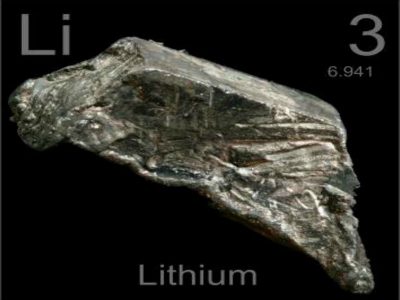Creation of Largest US Lithium Mine Draws Closer Despite Protest Over Land Use
Thacker Pass mine considered critical to Biden’s $2 trillion clean energy plan.

All Global Research articles can be read in 51 languages by activating the Translate Website button below the author’s name.
To receive Global Research’s Daily Newsletter (selected articles), click here.
Follow us on Instagram and Twitter and subscribe to our Telegram Channel. Feel free to repost and share widely Global Research articles.
***
Construction will reportedly soon begin on a mine that’s expected to become the United States’ largest source of lithium. This mine is viewed as critical to Joe Biden’s $2 trillion clean energy plan by powering the nation’s increased production of electric vehicles.
On Monday, a US district judge denied the majority of legal challenges raised by environmentalists, ranchers, and indigenous tribes, upholding that the federal government’s decision to approve the Thacker Pass mine in 2020 was largely not made in error. However, chief judge Miranda Du did agree with one of the protesters’ claims, ordering the US Bureau of Land Management (BLM) to complete a fresh review to determine if Lithium Americas Corp has the right to deposit waste rock on 1,300 acres of public land that the mining project wants to use as a waste site.
Because this waste site may not contain valuable minerals, there’s a possibility that this land may not be validly claimed as a waste site under current US mining laws, Du wrote in the order. A mining law from 1872 requires that mining projects must validate all claims to public lands before gaining federal approval, and that means Lithium Americas must now provide evidence that valuable minerals have been found on the proposed Thacker Pass waste site to resume the project.
Although this review may set back the project’s major construction timeline by as much as six months, that doesn’t seem to be a big concern for Lithium Americas. Reuters reported that the company met with BLM today to begin the review. The company’s chief executive, Jon Evans, told Reuters that because lithium has previously been found throughout the project area, Lithium Americas considers Du’s order to conduct a review an “easy fix.”
Calling it a win for the mining project, Evans confirmed that preparations for the mine site would promptly begin, projecting that heavy construction would be underway by this summer.
In the order, Du rejected claims that the project could disturb wildlife, degrade air quality and groundwater sources, or overlook the cultural significance of Thacker Pass to local tribes, determining that BLM adequately weighed environmental and cultural impacts before approving the project.
Ars could not immediately reach BLM for comment. Lithium Americas linked Ars to a statement the company posted today, saying that it would be working closely with BLM to review the waste site and saw no reason to further delay construction.
“The favorable ruling by the Federal Court confirms the permitting process for Thacker Pass was conducted thoroughly and responsibly, and results in there being no impediment to commencing construction,” Lithium Americas wrote in the statement.
*
Note to readers: Please click the share buttons above. Follow us on Instagram and Twitter and subscribe to our Telegram Channel. Feel free to repost and share widely Global Research articles.
Ashley Belanger is the senior tech policy reporter at Ars Technica, writing news and feature stories on tech policy and innovation. She is based in Chicago.

